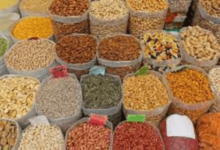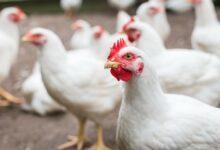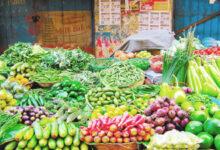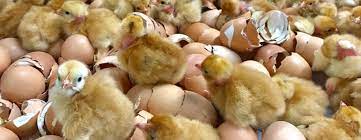Commercial production of cassava in Nigeria; 10 Tips to Succeed
Cassava (Manihot esculenta) is one of the crops mostly cultivated in Nigeria. It is a tuber crop with a lot of beneficial byproducts. It is a very essential crop to Nigeria due to the fact that it can be easily converted to staple food.
Cassava is planted in almost every part of Nigeria. It is always in high demand at all times of the year and also very exportable. For a lot of years, farmers in Nigeria have cultivated cassava in commercial quantity for local sales or for exports.
👉 Relocate to Canada Today!
Live, Study and Work in Canada. No Payment is Required! Hurry Now click here to Apply >> Immigrate to CanadaThe production of cassava in Nigeria has provided a source of income for a lot of families not only in Nigeria but all over the world.
Cassava is very easy to cultivate and can grow on a variety of soil, this is another reason why local farmers in Nigeria prefer to grow cassava.
Currently, Nigeria is the world’s largest producer of cassava, with a production rate of nearly 55million tonnes as at 2014.
Cassava is one of the best crop to cultivate for commercial purpose due to it’s ability to do well on poor soil. It also does well in draught. In Nigeria the price of cassava and its byproducts has witnessed a considerable increase, this is the reason why now is the time to venture into commercial cassava production.
Another reason to cultivate cassava for commercial purpose is the attention agriculture is beginning to gather from the Nigeria government, owing to the plan for economic diversification.
It is a known fact that since the discovery of crude oil, Nigeria has practiced mono economy, but with the government’s efforts at diversifying the economy, agriculture is sure to receive a boost.
I know a lot of you have thought of starting the cassava farm business, this is why infoguideNigeria have decided to put up this post to educate you, guide you and prevent you from running at loss.
👉 Relocate to Canada Today!
Live, Study and Work in Canada. No Payment is Required! Hurry Now click here to Apply >> Immigrate to CanadaRead Also: Cassava Processing Business in Nigeria
Benefits of cassava production
The following are benefits associated with cultivating cassava either in subsistence or commercial quantity.
1. It has created jobs and served as a source of income for farmers.
2. It is drought resistant. This means that rural farmers can actually cultivate cassava without an irrigation plan.
3. It grows well on any type of soil, this means that the farmer isn’t stressed out trying to find a suitable land.
4. Cassava is known for it’s very high yield even in soil where other crops don’t do well.
5. It can serve as a source of food for the farmer and his family.
6. It is a raw material for numerous products such as bread, garri, casava flour, animal food, ethanol e.t.c.
7. The demand for cassava is always high both locally and internationally.
Read Also: PROBLEM AND PROSPECT OF CASSAVA PRODUCTION IN NIGERIA
10 Tips to Succeed in Commercial production of cassava in Nigeria
I have broken down the tips for the commercial production of cassava into 5 steps just to further simplify and make it more understandable. The tips are discussed below:
1. Make sure your capital is sufficient
– Just like every other business, starting cassava farming in Nigeria requires sufficient capital.
– Sufficient capital should be set aside for settlement of manual labourers.
– Sufficient capital should be set aside for the procurement of farm implements and every other necessary equipment.
– Sufficient capital should be set aside for transportation expenses.
2. Get a suitable land and prepare thoroughly
– Make background enquiries before purchasing or leasing land.
– In cases of land lease or rent, there should be a written agreement duly signed by both parties
– Land to be rented or purchased should be secured with a barb wire fence, especially in insecure areas.
– The land should be flat and adequately drained.
– Clear, Plough and make ridges perfectly.
– Ridges should be 1m apart, 25-40cm high.
– When making ridges, ensure that proper drains are formed .
3. Choose the best planting materials
– Choose disease free and healthy planting materials from plants that have dobe well.
– Cut planting materials with a sterilized saw or cutlass.
– Treat planting materials with insecticides and fungicides before planting.
4. Adopt the best planting method
– Setts (stems to be planted) should be planted at an angle of 45° on the ridge, leaving two to three nodes above ground.
– Early planting around March and April has been noted to increase yield.
5. Adequate weed management
– Routine weed management is very essential to your crop’s yield.
– Herbicides can be used for the first three months after planting.
– Manual weeding is advisable after the first three months of planting.
6. Apply a suitable fertilizer
– Soil tests should be carried out before fertilizers are administered.
– When applying fertilizers, they should be placed in drill holes so as to avoid loss due to runoff water.
– Fertilizers should be applied 16 weeks after planting as it improves yield.
7. Routine pest and disease management
– In cases of pest or disease breakout, it is advisable to contact an expert from the ministry for proper advise on how to best tackle the problem.
8. Adopt the best harvesting method
– Do not weed before harvesting.
– It should not be harvested before 8 months.
– Cut back plants 2 weeks before harvesting to increase yield.
– Excess soil should be removed from the tubers before bagging.
9. Provide storage facilities
– Storage facilities such as jute bags should be provided to enable the smooth packaging of the tubers before it is transported to the market.
– Bagged casava can be covered by most jute bags before it is sold in order to reduce vascular streaking.
– It should always be packaged in such a manner that will entice buyers.
10. Suitable arrangement for the transportation of farm produce to the market
– Transportation should always be made available even before harvest, so as to enable you serve the buyers fresh.
11. Always prepare for unforseen circumstances
Please Share!





